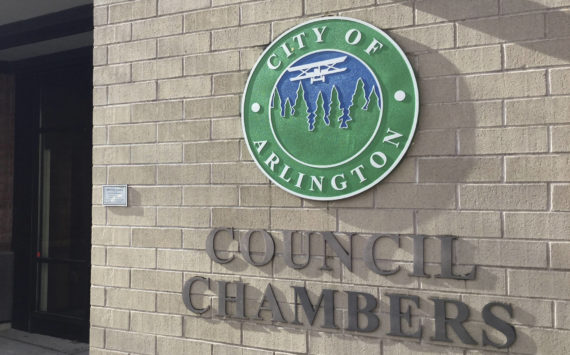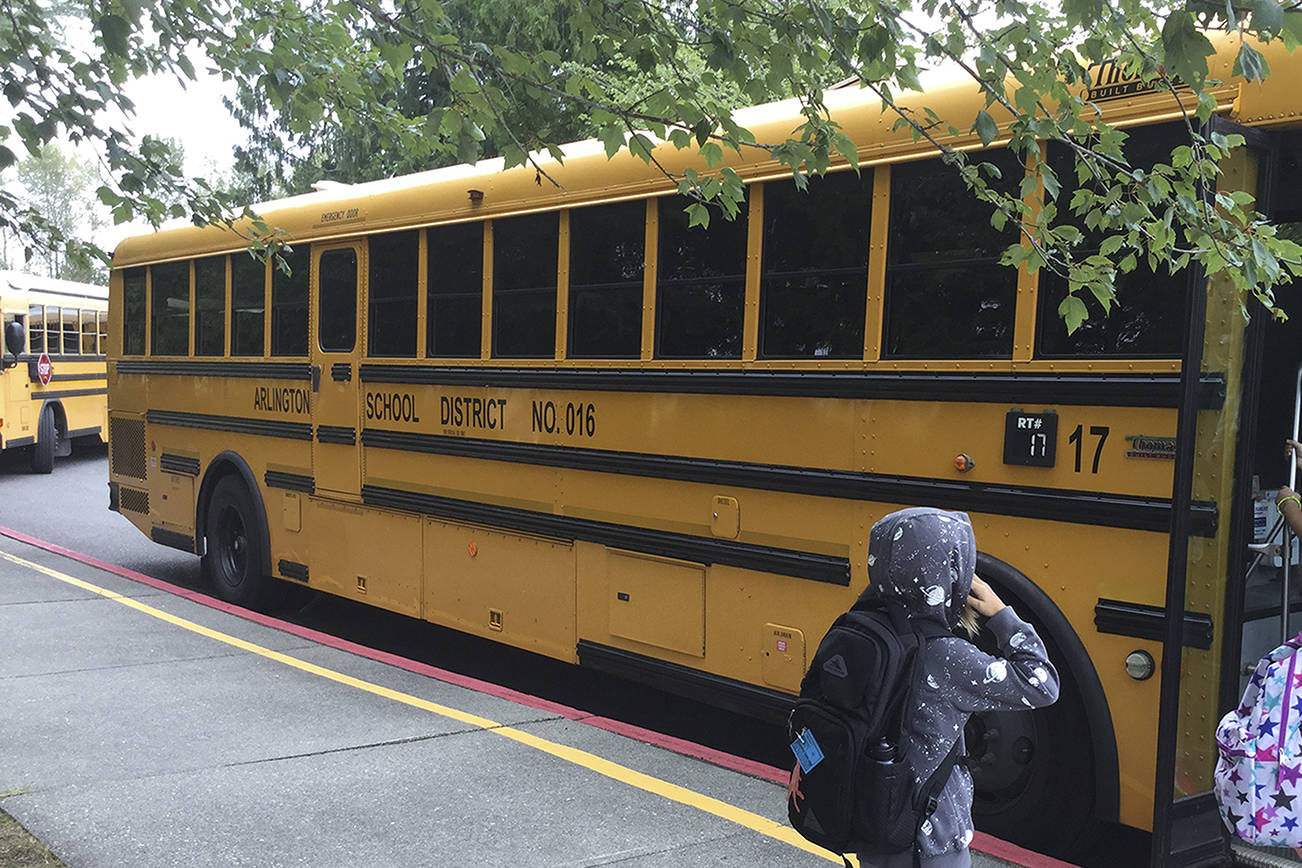ARLINGTON – As city leaders address burgeoning homelessness in Arlington and Smokey Point, the business community will be an important partner.
Arlington is working with a contractor to help leaders better address street-level homelessness, addiction, mental health and poverty, identify service gaps and develop a robust program that connects individuals with social services and resources.
“We all know what’s going on, and we need you to become part of the solution,” said Julie Frauenholtz of Community JF Consulting, speaking to a packed room at the Arlington-Smokey Point Chamber of Commerce luncheon Tuesday at Angel of the Winds Casino.
The city hired Frauenholtz with a grant from the United Way of Snohomish County, and her involvement with the Everett Community Streets Initiative is providing the model for how Arlington aims to approach homelessness. The Everett initiative brought together community members, business owners and service providers to work with government in carrying out a series of actions to deal with homelessness.
Two ideas Arlington is taking a close look at early include an embedded social worker to accompany police on certain types of calls, and a community court to divert some eligible defendants in the direction of immediate social services.
Frauenholtz has been meeting with the Family Resource Center, faith community, nonprofit providers, health care, emergency medical services, city and county government, businesses, law enforcement, service clubs and other volunteers to get their feedback about homeless and associated issues.
She also guided a city survey in April to gather more information programs and service gaps.
While Frauenholtz couldn’t yet share the results of her research since that report will be presented to the mayor and city council in the fall, she did provide a bigger-picture view for business leaders.
Estimates from the Point in Time homeless count this year showed that the north county area is on par with Everett in terms of homelessness.
In the count, 390 – or 76 percent – of the 515 unsheltered people reported that their last permanent residence was in the county. Of that total, 184 said the last city they slept in was Everett. By comparison, Arlington, 75, Marysville-Tulalip, 66, and Granite Falls, 40, combined for 181 individuals.
“Ultimately, we’re all dealing with the same challenges,” said Frauenholtz, adding that the number of chronic homeless is up 24 percent from 2016.
Frauenholtz said that despite having resources to help break people out of poverty, there will be those who choose to be homeless and are part of encampment communities who don’t want services. Substance abuse and mental illness contribute to that mistrust and disinterest.
The challenge for providers will be to find individuals who are willing to accept assistance and help them along the road to rebuilding their lives.
Housing is the primary need that tops the list, she said. Local governments and other partners need to develop short- and long-term actions to expand housing availability in a market where inventory already is tight for the public in general.
Frauenholtz said she hopes that the program Arlington pursues will help businesses contending with homelessness, vagrancy and loitering issues as much as it helps the homeless themselves.






